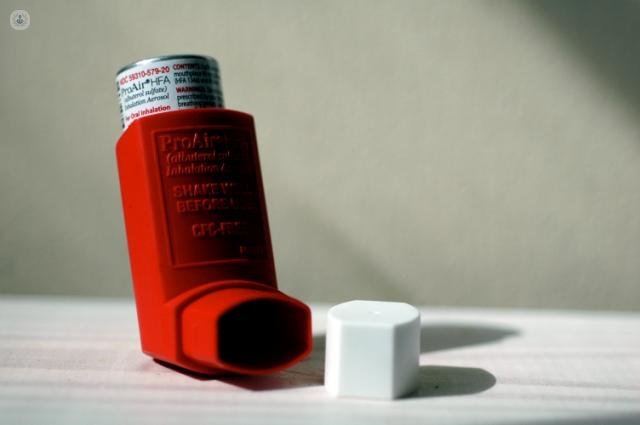Asthma: What are the signs and symptoms?
Written by:Asthma is an inflammatory disease that affects the airways of the lungs. It can be common, long term or chronic. It is an inherited condition, which can be triggered by environmental factors such as allergies, especially to animals and pollen.

Prevalence of asthma
Asthma is more prevalent in urban areas, and is increasing in western society. It is very common with adults and children and affects around 5 million people in the UK. Asthma is more common in adult women than in men, but in children this is reversed and more boys are affected than girls.
Signs and symptoms of asthma
Most patients with asthma present with a dry cough, restlessness, tightness of the chest and wheeze. These symptoms can be stronger first thing in the morning and at night as your body slows down the process of producing hormones to reduce inflammation during these times. Asthma symptoms can be mild, and the airways only narrow a little, or they can be more serious where the inflammation causes restricted oxygen intake in the bloodstream. Seek immediate medical attention if the symptoms are serious.
Diagnosis of asthma
Early diagnosis of asthma is critical, if asthma is not treated it can become serious and life-threatening. The diagnosis can be made with clinical examination and a spirometry test.
Treatment of asthma
Asthma can be treated with a variety of inhalers and sometimes with tablets. The patient should also be given a self-management plan and advice as how to avoid triggers.
Is there a cure to asthma?
Asthma can be reversible with the right therapy and treatment. Your doctor can find this out by completing spirometry with reversibility testing. For this test, a spirometry test is given, followed by the use of an inhaler, then another spirometry test is given to test for reversibility. Asthma affects around 5 million people in the UK.


